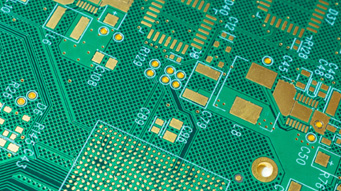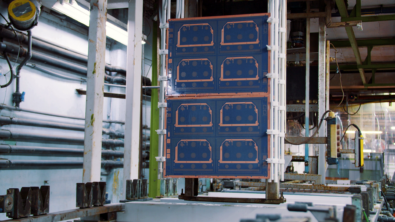Try to fit some plane pairs in your stackup
At the very minimum, a good board stackup has solid reference planes for signal routing. Power demands now pretty much require that you have at least one power/ground sandwich in your stackup as well. Ideally, you would have all the power and ground planes on the top layers in a big PWR-GND-PWR-GND alternating “Big Mac” where they were nice and close to the ICs and all the caps were mounted on the top. But that would also require symmetry to the bottom of the board and that’s a lot of layers just for power. But you should really have at least one power/ground sandwich somewhere in the board, especially if you are running some very low voltages with high current demands. The reason is that embedded capacitance in the board really helps reduce the higher-frequency pieces of the power distribution network (PDN) impedance. More-so, it provides a low-impedance path for energy to propagate between the decoupling caps and the IC power pins.
You might think that as long as your caps are connected to solid planes you are fine, but in reality you need to have a plane pair in order for the caps to have a nice low-inductance connection. If they are not connected to a plane pair, they are rendered almost useless. Kind of like routing a trace without a reference plane.
To read more about stackup design, check out my article in PCD&F:
http://pcdandf.com/cms/magazine/171-current-issue/7993-designers-notebook
And to learn more about power integrity, take a look at some of the great materials on our web site:
http://www.mentor.com/products/pcb-system-design/circuit-simulation/hyperlynx-power-integrity/


